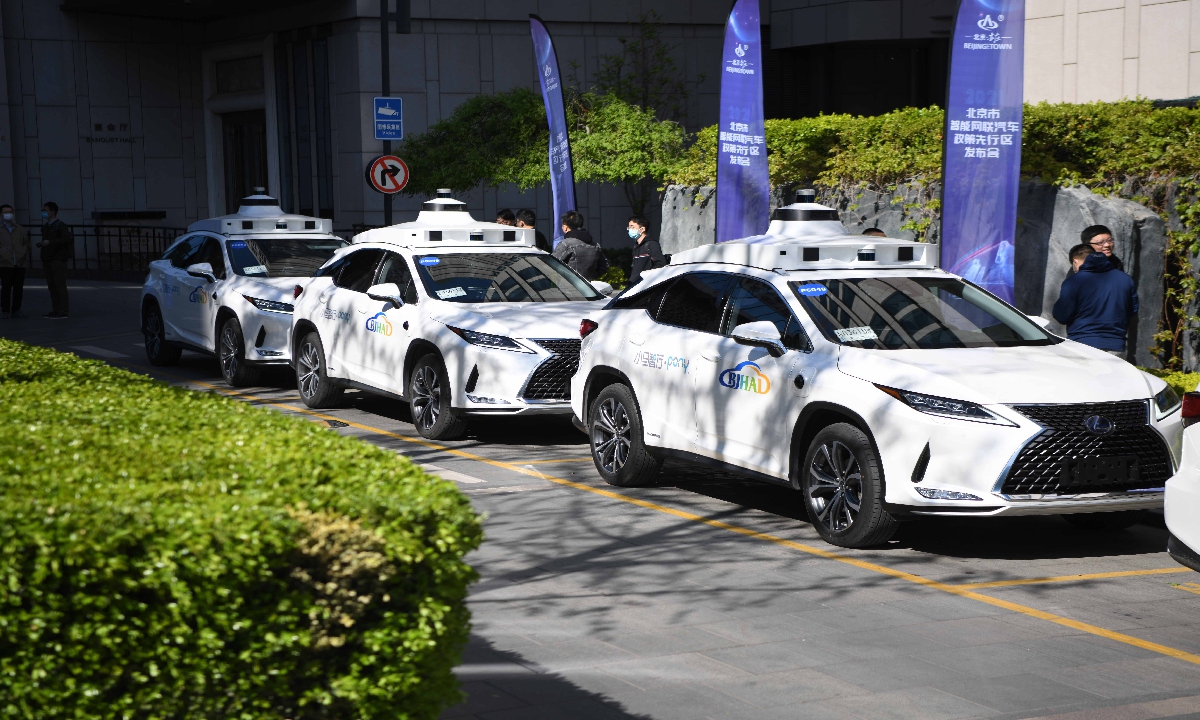
A Pony.ai self-driving fleet in Beijing Economic-Technological Development Area, Beijing on April 13, 2021. Photo: CFP
The Ministry of Transport on Monday issued draft guidelines that encourage the use of autonomous cars in taxi services under certain conditions, in a move that companies and analysts say will help accelerate the commercialization of self-driving vehicles.
The ministry said in the draft guidelines that it encourages the use of self-driving vehicles to provide taxi services under simple and relatively controllable conditions.
Authorities are seeking public comment on the guidelines through September 7.
The guidelines suggested allowing self-driving vehicles to serve as buses on dedicated routes, but forbad autonomous driving vehicles to carry dangerous goods.
The document also noted that highly autonomous vehicles should have back-up drivers, and remote drivers or safety officers should be required for fully autonomous vehicles.
Such rules will make the industry develop fast, and speed up the commercialization of self-driving cars in the taxi sector, Zhang Xiang, a research fellow at the Research Center of Automobile Industry Innovation of the North China University of Technology, told the Global Times on Monday.
"It will encourage self-driving companies to carry out tests in more cities in the taxi sector, with the support of the government," Zhang said.
This is very positive news for autonomous driving companies; for the first time, the national regulator has proposed actual guidelines for these companies, autonomous driving technology company Pony.ai told the Global Times on Monday.
On August 2, Pony.ai said that it reached an agreement with ride-hailing firm Cao Cao Mobility to promote the broad deployment of self-driving taxi-hailing services.
Several Chinese self-driving car companies have announced new investments and plans for self-driving taxi services.
Technology giant Baidu on Monday said that it had secured the first permit in China to offer fully driverless robotaxi service to the public on open roads.
Apollo Go, Baidu's autonomous ride-hailing service, is now authorized to collect fares for robotaxi rides - without human drivers sitting in the car - in Southwest China's Chongqing Municipality and Wuhan, Central China's Hubei Province, according to a release sent to the Global Times.
The southern Chinese metropolis of Shenzhen on August 1 started allowing fully autonomous vehicles to run on certain roads as a local regulation on smart and internet-connected vehicles came into effect.
It stipulates that fully autonomous automobiles without drivers can run on roads in areas designated by the local traffic management department.




